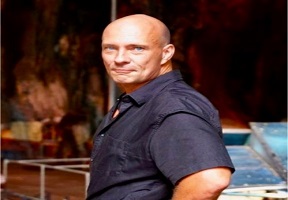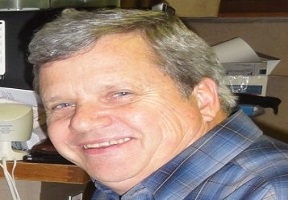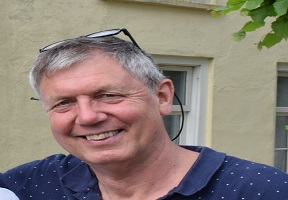Speakers
Richard Cropp
DrCroppBioF2 Sdn Bhd, MalaysiaTitle: Cropp Positive Displacement Turbine Engine - Half the Size Half the Weight with Twice the Power
Abstract:
Biomass as renewable energy source is the most desirable future avenue for energy Generation. And a large part of that biomass is available as waste from Human Activities related to food consumption. In a previous talk I mentioned a new System to increase the Gas Output from Anaerobic Digesters and how to depolymerize Plastic to obtain Oil. The Biogas as well as the Oil are Fuels that need to be converted to preferably Electrical Energy as a Source of Income. The issue with this conversion step is that it requires an Internal Combustion Engine for direct Conversion or a Steam Turbine for Indirect Conversion. In this talk you will hear about a new type of Engine that can handle both Task. The new PDT Engine can run on any type of combustible fuel by switching compression ratios. It also can run on Steam or Compressed Air and Water Pressure. This is due to its characteristic as a Turbine that has virtually no bypass loss and it harvests 20-40% more of the inherent energy contained in the charge. We will dive into how these benefits are achieved and how the Biofuel Industry can benefit from it. You will also learn how its minimalist design contributes to environmental Savings during the production Process. You will also discover the reason that this engine has the potential to become the world’s cheapest and most versatile engine for all current applications with a projected price to be half for same displacement engines and a quarter for the same power output. Further the operating cost will be half due to regenerative operation modes that cannot be deployed in existing engines. Biography of Presenting Author Detail
Biography:
Dr Richard Cropp is a Green Energy Innovator and German Chemical Technology Specialist, who is currently residing in Malaysia. Over the last 20 years, he has been passionately developing and promoting innovative technology to create sustainable energy alternatives. His 2020 innovation is a patent-pending system to convert Biomass and/or Plastic such as palm waste into liquid fuel. To use this and any other combustible fuel he has designed the World’s first Positive Displacement Turbine to create twice the power at half the size and weight of a conventional engine...with almost 50% Fuel Saving. He is also an in-demand speaker at business and environmental conferences for his vast knowledge of the global green/clean energy challenges particularly in Asia.
Thomas R Miles
US Biochar Initiative, USATitle: New Opportunities for Biochar from Biomass Energy
Abstract:
The US Biochar Initiative promotes the production and use of biochars from urban wood and residues from bioenergy, forestry, and bioenergy industries. Biochar markets continue to grow in North America creating new opportunities to convert wood residues to sustainable carbon while restoring soil health and improving water quality. More than155 US companies supply an estimated 50,000 tons of biochar per year which is used in agriculture, landscaping, and environmental remediation. Most of the biochar is a co-product of biomass energy made through gasification and combustion. New uses such as wallboard, cement, packaging, and electronics have increased the potential to sequester carbon by converting wood residues to biochar and renewable energy. This presentation will show how bioenergy producers can make biochars at existing facilities to improve soil health; restore degraded urban soils and abandoned mine lands; reduce water pollution from pharmaceuticals and fertilizers; remove nutrients, metals and bacteria from stormwater; and access new carbon markets.
Biography:
Tom Miles is the president of T.R. Miles, Technical Consultants, Portland, Oregon, a biomass energy consulting firm, which designs, develops, installs, and commissions systems for processing wood, agricultural, and urban residues. His knowledge of ash transformations led to recycling nutrients using pyrolysis of residues to biochar. He has sponsored and hosted online discussions of biomass energy since 1994 and biochar since 2006. He is Executive Director of the United States Biochar Initiative and past chairman of the International Biochar Initiative.
JWA Langeveld
Biomass Research, NetherlandsTitle: Valorisation of Rural and Urban Biowaste: An Inventory of Feedstocks, Technologies and Production chains
Abstract:
According to IPCC, bioenergy should be an essential and integral part of carbon reducing policies; bioenergy use will be substantial in 1.5°C pathways due to its role in decarbonizing energy use. Bioresidues and biobased materials represent a potential source of renewable energy and biobased materials. The use of urban and rural waste as feedstocks for bioeconomy production chains will contribute to the realisation of UN Sustainable Development Goals (SDGs) related to healthy lives (SDG-3), sustainable water and sanitation (SDG-6), energy security (SDG-7) and climate change (SDG-13). Questions that need to be addressed include the selection of the feedstock, their availability and the use of conversion technologies needed to develop environmentally sustainable, economic and socially acceptable production chains.
Low urban and food waste recycling rates and high costs for waste collection, handling and conversion are some of the barriers that hinder development successful waste-conversion chains. This presentation discusses availability of organic waste streams from forestry, agriculture and urban centres in the Netherlands and various countries in Europe. Results of recent projects that describe options for the valorisation of urban waste in dedicated biobased production chains (feedstocks, biorefineries, potential end-products) using the urban metabolism analytical framework will be presented. Special attention is given to logistic concepts including bio-hubs.
Biography:
Hans Langeveld studied tropical agronomy at Wageningen University. He started his career at the economic faculty of the Vrije Universiteit Amsterdam, where he worked on food production and land use issues. He specialised in sustainable agriculture at Wageningen University and Research Centre, developing into a specialist on a land use, nutrient management and climate (Greenhouse Gas emissions), analysing nutrient emissions, sustainable bioenergy and biobased economy. In 2008, Hans started a company, Biomass research, which serves governments, companies and NGO’s. Over the past few years, it provided input to complex issues related biomass availability, biobased economy and sustainable land use issues. Hans has co-authored books on agricultural systems, biomass and biobased economy, and has given over 200 presentations. He is board member of the Dutch Bioeconomy Federation



